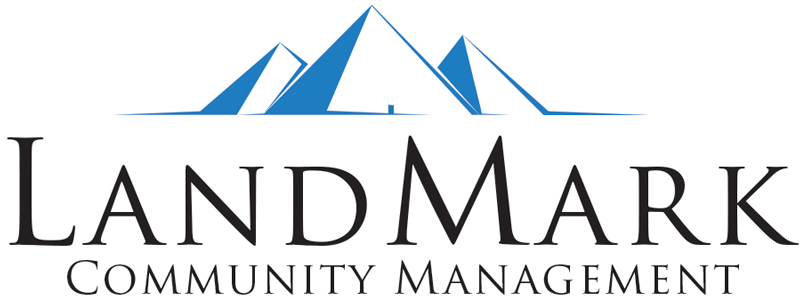If you’re new to the HOA scene, there is a good chance you don’t quite understand HOA board governance. Within an HOA community, some leaders make the decisions, preside over meetings, and ensure that the association’s best interests are first.
What Is HOA Board Governance?
A homeowners association works similarly to a corporation. In many states, HOAs are organized as nonprofit corporations, including Texas. And, just like a corporation, every HOA has a set of board members calling the shots.
HOA board governance or condo board governance is no easy feat. Homeowners don’t just magically become board members; some may be appointed depending on the circumstance.
Who are the board of directors in HOA?
In an HOA, board members are volunteer homeowners elected into their positions. As the word “volunteer” suggests, board members generally don’t receive compensation for their work. They also don’t receive any special treatment. That means board members must pay their dues and follow the association’s rules – just like everyone else.
What Are HOA Board Responsibilities?
The responsibilities of HOA board members may differ from one association to another. However, most share three primary responsibilities: accounting and financial management, rule enforcement, and common area maintenance.
The HOA board has a responsibility to manage the association’s finances. This includes collecting regular dues from members, preparing budgets, and staying on top of expenses. The board must also prepare tax returns and create financial statements, though many employ professionals.
The HOA board is also responsible for enforcing the association’s rules. This helps ensure that the community remains peaceful and property values remain high. If an owner violates a rule, the board must follow through with notices and penalties according to the provisions of the governing documents.
Finally, the HOA board has a responsibility to maintain the common areas. All homeowners have a shared interest in the common areas and facilities. Thus, they fund the upkeep of these areas while the board is tasked with ensuring proper and regular maintenance.
Fiduciary Duties of the HOA Board
Board members must uphold certain fiduciary duties to do right by the community they manage. These duties include the duty of care, the duty of loyalty, and the duty to act within the scope of its authority.
Duty of Care
The duty of care refers to the duty of board members to make informed decisions for the association. This means that board members must do their due diligence, including proper research, before voting on an issue. Board members must use sound business judgment at all times. It is unacceptable for board members to act arbitrarily or selectively.
Duty of Loyalty
According to the duty of loyalty, HOA officers must act in good faith and fairly. Board members must always put the interests of the HOA as a whole above their own or anyone else’s. In other words, the board is loyal to the association.
The duty of loyalty also dictates that board members avoid conflicts of interest. If there is a conflict of interest, the board members must disclose it and recuse themselves from any related discussions or votes.
Lastly, the duty of loyalty requires board members to protect the confidentiality of residents. That means refraining from disclosing private or confidential information to third parties without the owner’s consent.
Duty to Act Within the Scope of Authority
In plain terms, this requires the board only to carry out the responsibilities it is obligated to perform. If the board has no authority to act on an issue, it must refrain from doing so. An HOA board’s authority primarily stems from two things: state laws and the association’s governing documents.
HOA Board Member Code of Ethics
Here are some points worth including in an HOA board code of ethics.
1. Commitment
First, board members must commit themselves to the association. Managing a community takes time and effort, so board members must never do it carelessly.
2. Compliance
Board members must follow all applicable laws and the HOA’s governing documents. This will keep the association out of legal trouble. Additionally, it sets a good example for other homeowners.
3. No Conflict of Interest
If there is a conflict of interest, board members must disclose it immediately. They must also refrain from participating in the discussion or voting related to the conflict. This eliminates unethical accusations and helps build trust.
4. Confidentiality

As previously explained, board members should never divulge private or confidential information. Board members always deal with confidential information, including legal and financial details. Therefore, keeping their lips sealed is simply a part of the job.
5. No Discrimination
The HOA board should never discriminate against anyone. Discrimination not only violates Fair Housing laws but is also an unethical practice. An association should strive for inclusivity to foster a peaceful and harmonious neighborhood.
6. Professionalism
All board members should behave with the utmost professionalism, even amid a debate or disagreement. It is common to have opposing views with fellow board members or residents. Maintaining a professional and respectful demeanor separates a good board member from a bad one.
7. Communicate
Board members should keep an open line of communication with fellow board members and residents. Remember that HOAs are not run by dictators. Seek input and feedback whenever appropriate. Communication promotes collaboration as well as transparency, leading to stronger trust.
8. Contractor Selection
An HOA should have a standard vendor selection procedure, including securing bids and researching. This helps establish a uniform way of evaluating and choosing contractors. Moreover, it prevents dishonesty in HOA board governance.
9. Conform to Structure
Board members are usually disallowed to conduct business, discuss association matters, or cast votes outside a meeting. A notice and a quorum requirement should precede every meeting. It would be unethical for a board to violate this structure as per state laws or the HOA’s governing documents.
Is an HOA Manager a Board Member?
While HOA board leadership comprises homeowners or residents, managers also play an important role in the community. An HOA manager is not a board member; rather, they support board members.
Many associations employ a manager or management company. Board members can delegate administrative tasks to an HOA manager. These tasks include sending notices, liaising with vendors, and fielding homeowner concerns. However, the board retains the decision-making power.
HOA Board Governance Explained
Board members take on a heavy workload and a burden of responsibility when they assume office. It is not an easy job, and it is often a thankless one. An HOA management company, though, can significantly help the board manage the community.
Landmark Community Management serves condos and HOAs across Texas. Call us today at 512-569-5527 or contact us online to learn more!


